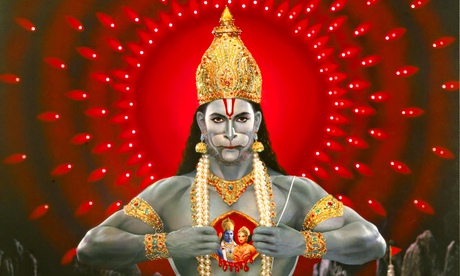
From first line to beautiful denouement, Claire North's The First Fifteen Lives of Harry August (Orbit, £12.99) is a gripping read that is often quietly profound, emotionally affecting and intellectually dizzying. Harry August is fated to live his life again and again, a kind of identical reincarnation, born to the same parents, in the same body, but with memories of his previous lives intact. As he lies dying at the end of his 11th life he is visited by a seven-year-old girl with a message from thousands of years in the future that he must deliver to the Cronus Club: "The world is ending." The members of the Cronus Club are, like Harry, men and women who live their lives over and over. When, in his next incarnation, Harry duly delivers the message, he is told that there is no hope of effecting change. What follows is Harry's investigations into the eventual apocalypse, and his fateful involvement with his friend Victor, a "fellow traveller" intent on accelerating the world's technological progress for his own ends … As might be expected from such a narrative, the novel is an examination of determinism and free will, but also a subtle study of friendship, love and the fluid complexity of existence.
Nnedi Okorafor's second novel for adults Lagoon, (Hodder and Stoughton, £13.99), mixes a traditional trope of SF – first contact with visitors from the stars – with African magical realism to create a lyrical, poetic mash-up examining social deprivation, religious excess and the power of story on our lives. When a starship crashes into the ocean off Lagos, an alien "ambassador", Ayodele, asks three disparate characters – a soldier, a pop star and a marine biologist – for their help. This sets the scene for a freewheeling, multiple-viewpoint narrative about the impact of the alien on the lives of the three and on wider society, as Ayodele's mission of peace results in bloodshed. The fragmentary, multivoice narrative makes for an exacting but rewarding read, unique not only in its setting and sensibility but in its take on the well-worn staple of first contact.
Age of Shiva (Solaris, £7.99), James Lovegrove's latest volume in the bestselling Pantheon series – which brings the gods to Earth and pitches them against secular, hi-tech forces – rings the changes with an ingenious conceit. This time the gods are manmade and fighting for their lives as they attempt to outwit their creators and save the planet. The novel hits the ground running when comics artist Zachary Bramwell is abducted by a quartet of thugs and spirited to the tropical island redoubt of the Trinity, ruthless businessmen whose greed threatens the planet with nuclear Armageddon. Through the process of "theogenesis" the Trinity has transformed men into superheroes – the 10 avatars of Vishnu from the Hindu mythos – whom they plan to hire out as mercenaries. Laddish, wisecracking Bramwell finds himself in the thick of things, and we watch him mature and develop as he takes on the mantle of Hanuman, the monkey god, and confronts the Trinity in a wonderfully ambiguous set-piece denouement.
Sense of place is often the hero in many fantasy novels, and never more so than in Neil Williamson's beautifully observed first novel The Moon King, (NewCon Press, £12.99). The island city of Glassholm was founded 500 years before the story opens when the survivors of a shipwreck were led ashore by their king, "dragging the moon in a net". He set the moon in the heavens and, ever since, the city has been governed by its cycle, the population joyous at Full and despairing at Dark – cowed by a king with the ability to assume mental and bodily control of citizens. This rich, allegorical, leisurely novel charts the convoluted fate of three main characters and their part in bringing change to Glassholm. The Moon King is literary fantasy at its best.
South African novelist and screenwriter Sarah Lotz's The Three (Hodder and Stoughton, £14.99) starts with a simple premise and extrapolates a world gripped by fear, suspicion and conspiracy theories. On Black Thursday, 12 January 2012, three planes crash with only a single child passenger surviving from each flight. What follows is a multiple first-person investigation, collated by journalist Elspeth Martins, into the mystery of their unlikely survival and what it might mean for the world as nefarious groups scheme to use the children for their own ends. Lotz does a remarkable job of literary ventriloquism in channelling the voices of a varied cast, including Southern religious fanatics, Cape Town medics, Japanese chatroom habitués, to build a picture of global paranoia and terror in a cutting satire of religious fundamentalism and corporate greed.
• Eric Brown's latest novel is The Serene Invasion (Solaris). To order these titles with free UK p&p, call Guardian book service on 0330 333 6846 or go to guardianbookshop.co.uk.

